Plumbers, pound coins and politics – 6 unbelievable moments from ‘Brawn: The Impossible Formula 1 Story’

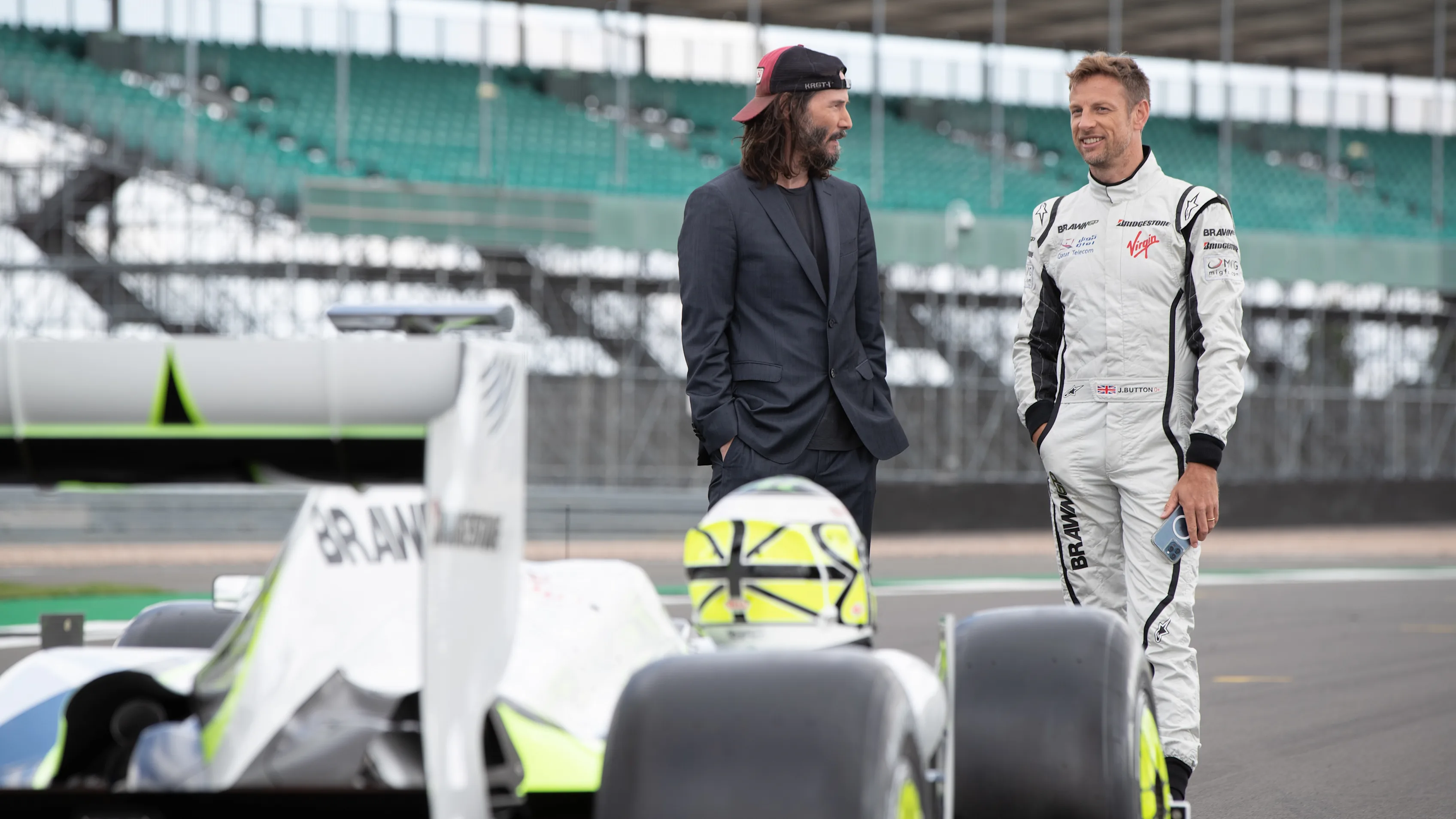
A new F1 documentary series has been released for the world to enjoy with Hollywood star Keanu Reeves fronting a comprehensive Disney+ take on the Brawn GP story, taking viewers behind the scenes of their remarkable double title-winning 2009 season. After watching all four episodes of Brawn: The Impossible Formula 1 Story ourselves, we’ve picked out some of the most memorable moments…
1. Honda’s boss kept the pound coin Brawn used to buy the team
With the global financial crisis taking hold, Honda made the decision to pull out of F1 at the end of the 2008 season, putting the jobs of several hundred employees at their Brackley-based operation under threat.
The documentary retells the winter that followed in great detail, with Team Principal Ross Brawn and CEO Nick Fry convincing Honda to keep up the funding while they attempted to find a buyer.
But as time went on and more and more “opportunists” were filtered out, another option emerged as a viable alternative – a management-led buyout.
“They would have spent 100 million dollars to shut the company,” remembers Brawn in conversation with host Keanu Reeves. “We said, ‘Don’t waste that money, because then there’s nothing left’.
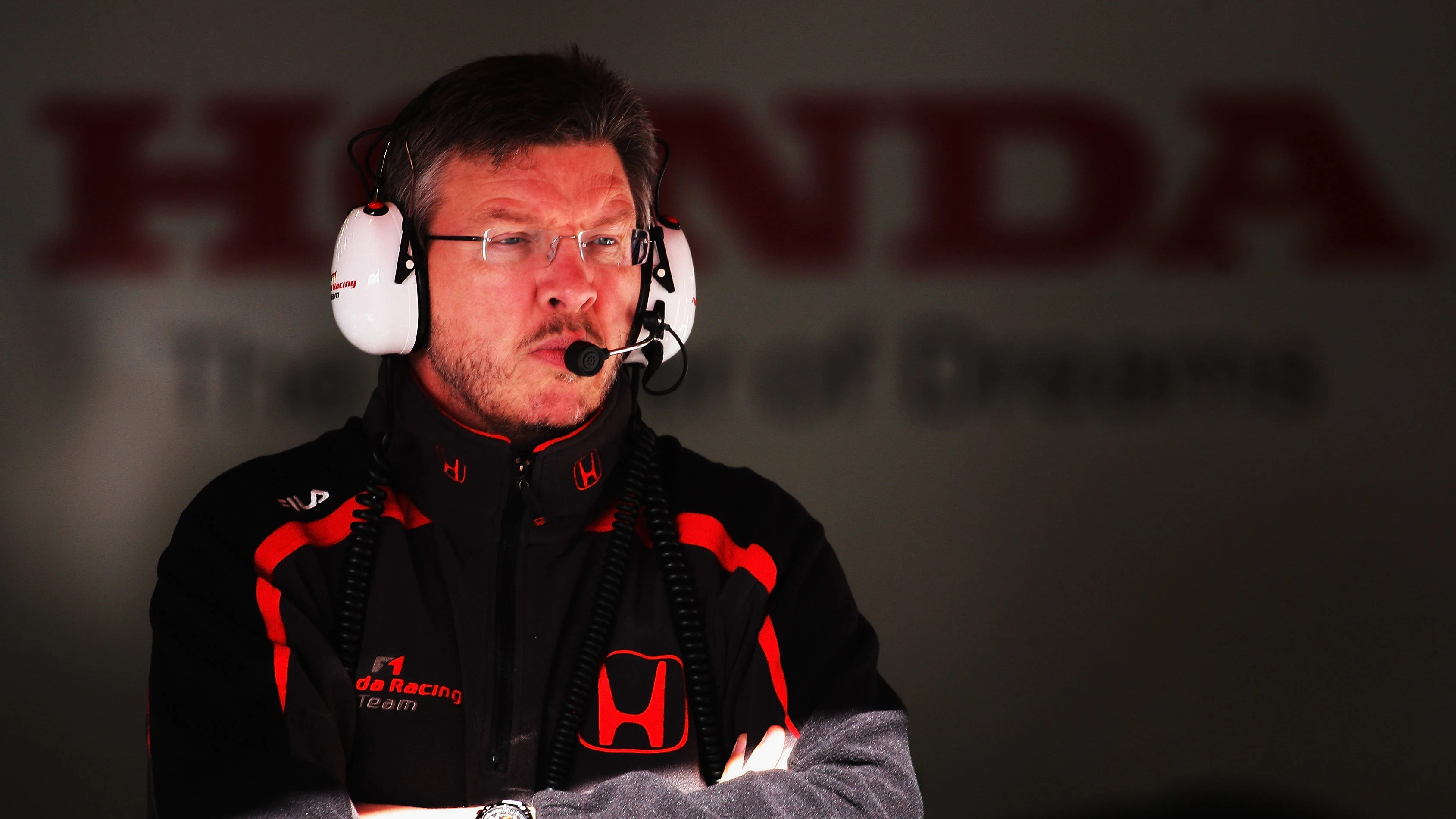
“If you allow us to buy the team and you give us 90 million dollars of closedown costs, we could run a skeleton operation of the company, we’ll take on all the responsibilities for the people… Why not go racing for a year if we can do it?
“When we finally closed the deal, I gave a pound to the Honda executive to formalise the deal. I know he still has it.”
At this point, Hiroshi Oshima, Honda’s then Motorsports Managing Officer, presents the original and somewhat weathered coin.
“I trust Ross very much, so if Ross is there, I can sell the team to him,” says Oshima, reflecting on the decision to sell directly to Brawn, later adding: “The choice we made was not wrong. The pound is very, very priceless!”
WATCH: Top 10 moments of Jenson Button brilliance
2. Nobody at Brawn could believe the performance of their new car
After securing the team’s immediate future, the rebranded Brawn GP faced their next set of challenges – none more so than finding a power unit for their car and then trying to shoehorn it into a design that was already a long way down the road.
Having agreed a deal with Mercedes, staff were at one stage split across three shifts a day, ensuring work was being carried out for the full 24-hour period, giving them the best possible chance of making it to the first round of the season in Australia.
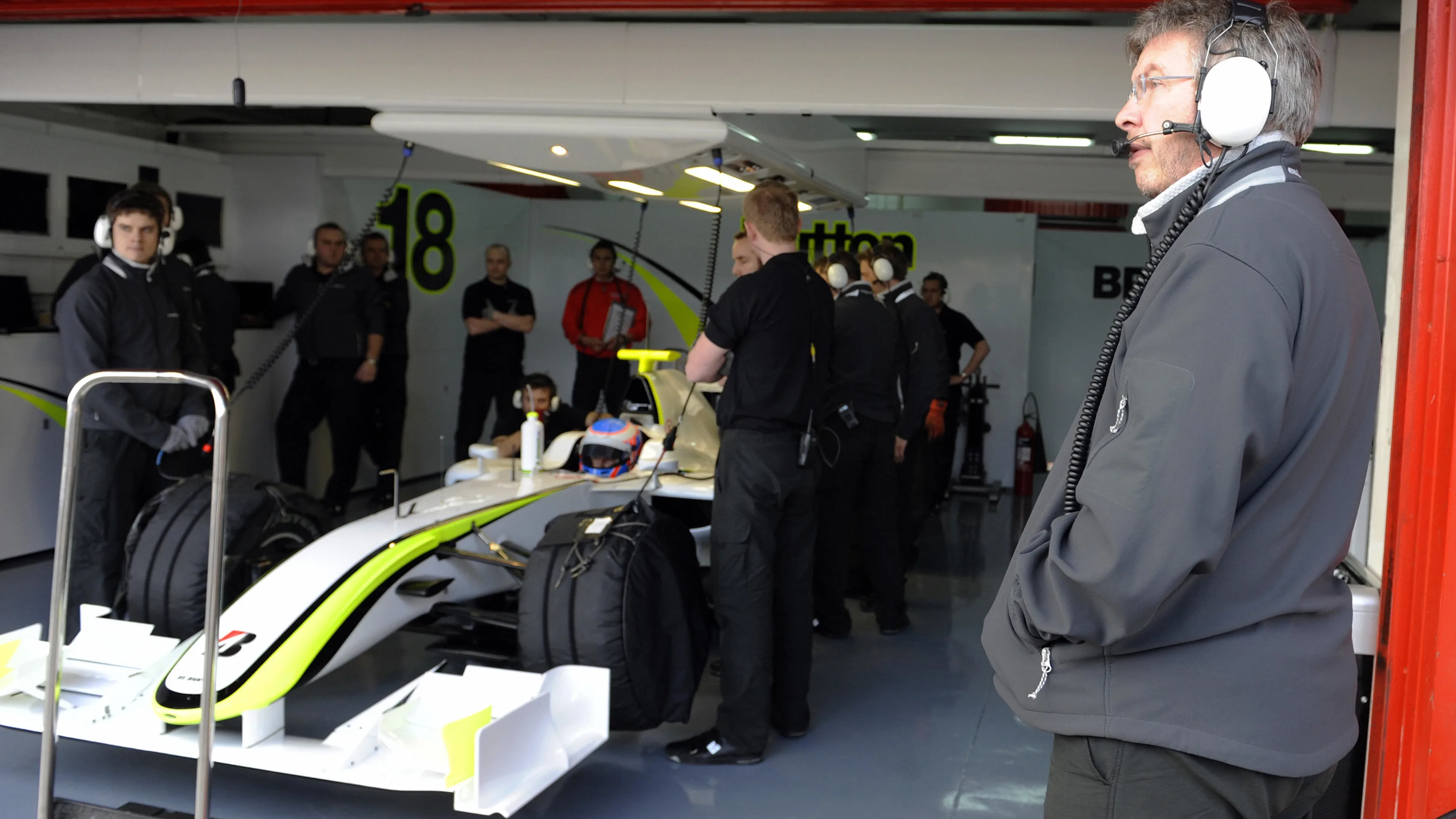
With pre-season testing already under way in Barcelona, Brawn recalled: “We had the simulation and prediction which showed us what sort of lap time we could expect, and we couldn’t understand where we’d gone wrong. Our simulation showed we would be a second [to] a second and a half quicker than what the field were achieving.”
Jock Clear, who served as Rubens Barrichello’s race engineer that season, chimed in: “We, of course, being very, very skeptical about the numbers guys back at the factory, we’re like, ‘Well, you’ve clearly got your numbers wrong, haven’t you?’ They’re like, ‘Okay, we’ve checked the numbers, we’re still two seconds faster than everybody.’”
Off the back of a successful shakedown at Silverstone, Brawn rocked up at Barcelona for the pre-season test and, just as the numbers had predicted, Jenson Button promptly smashed the fastest times posted up to that point.
“Quite clearly the car was exceptional, to the point that a lot of mechanics went out and put bets on,” adds a smiling Brawn, having turned heads up and down the paddock.
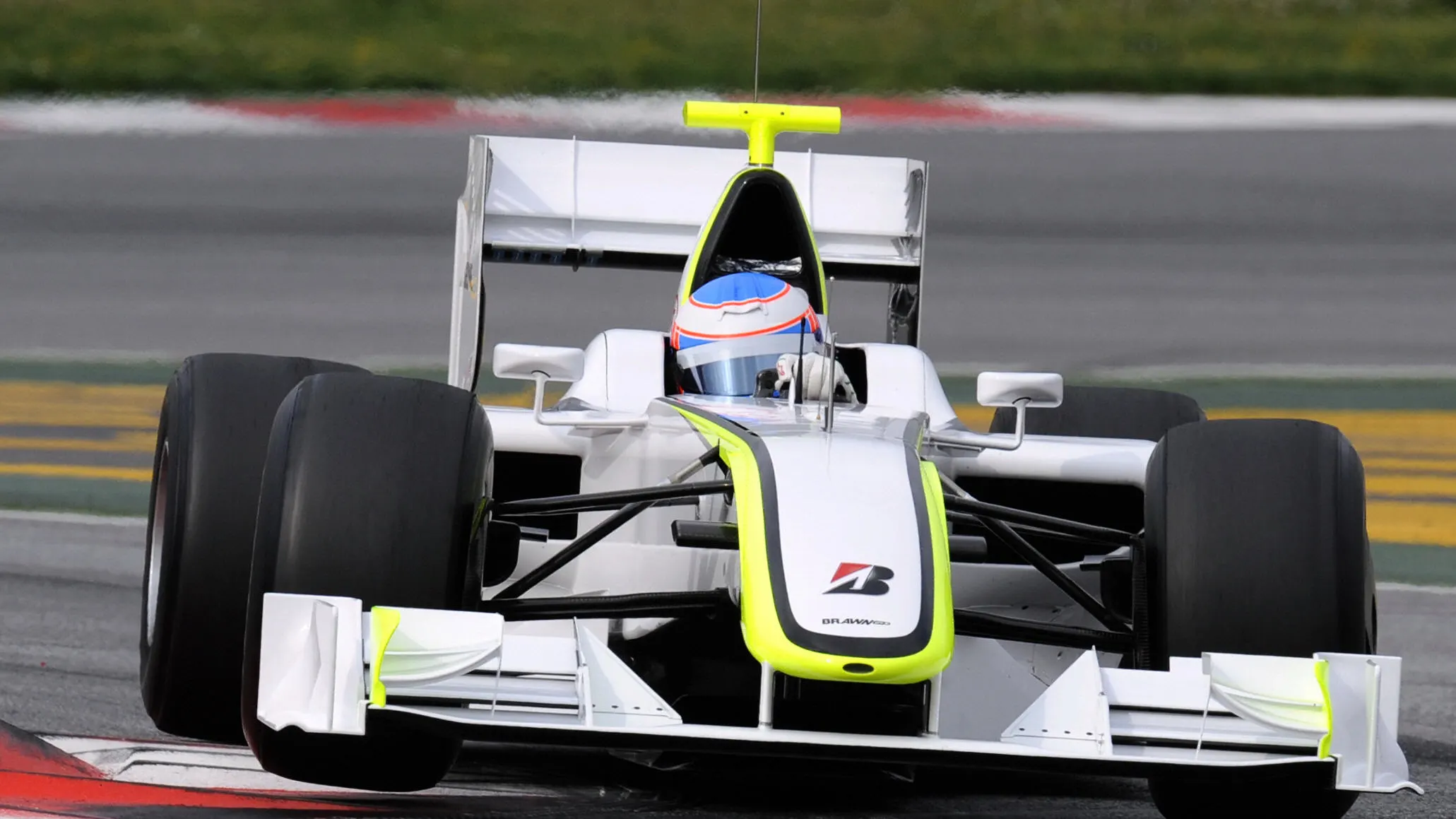
3. When Brawn flexed his muscles to deal with a double diffuser spy
Brawn’s testing pace was converted when F1 landed Down Under for the season opener, with Button and Barrichello charging to first and second on the grid, before claiming a fairytale one-two finish on race day in Australia.
However, in the words of Red Bull team boss Christian Horner, “the best way to become unpopular very quickly is to start winning”, and that’s exactly what happened to Brawn GP, via a particular focus on their innovative double diffuser design.
READ MORE: Ross Brawn on Michael Schumacher – the driver, the leader, the man
The brainchild of junior aerodynamicist Masayuki Minagawa, the double diffuser exploited a loophole in the new-for-2009 regulations to devastating effect and left teams who did not have one feeling rather perturbed.
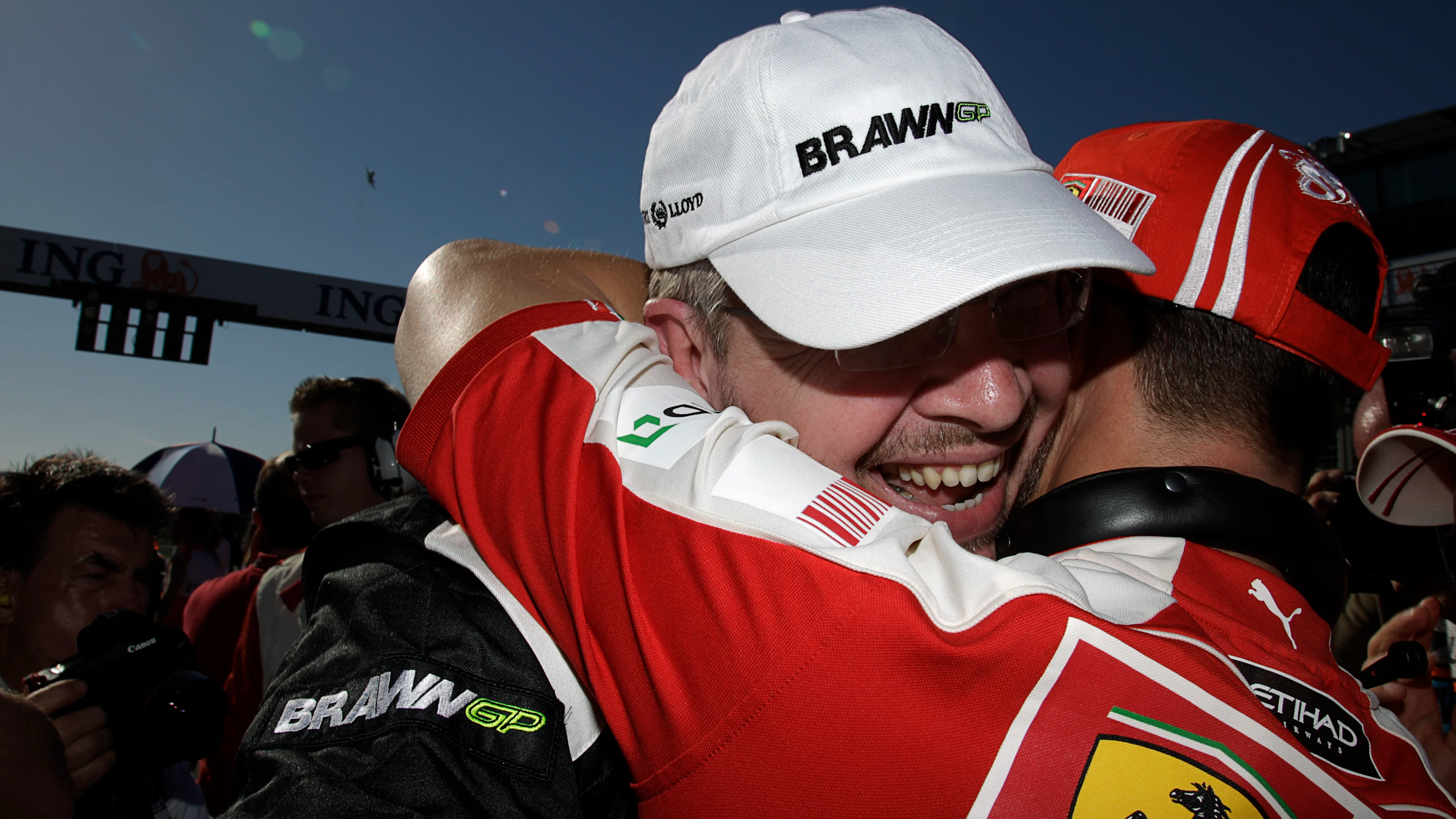
That meant plenty of eyes on the back of the BGP 001 throughout the Melbourne weekend, with Barrichello’s No. 1 mechanic, Nathan Divey, recounting an amusing tale of Brawn being forced to use his, er, brawn.
“One of the guys from Ferrari came down with a torch, and he sort of lays on the ground to get to look under the car at the double diffuser,” he comments. “Ross just walked up to him, grabbed his belt buckle and picked him up off the floor. He said something to him in Italian and off he went.”
READ MORE: From DAS to the double diffuser: 5 F1 innovations that caught rival teams napping
The situation would rumble on, as rivals formally protested Brawn’s design – along with similar creations from Toyota and Williams – and the matter went to the FIA International Court of Appeal for the governing body to have the final say.
Eventually, the double diffuser was declared legal, and it was up to the rest of the grid to push through their own designs.
“You always read the rulebook twice, once to see what it says and the second time to see how to get around it,” says former driver turned pundit Martin Brundle as he appears in the documentary. “That’s what they all do and I love that about F1. It’s just a genius solution that was better than other people’s solution.”
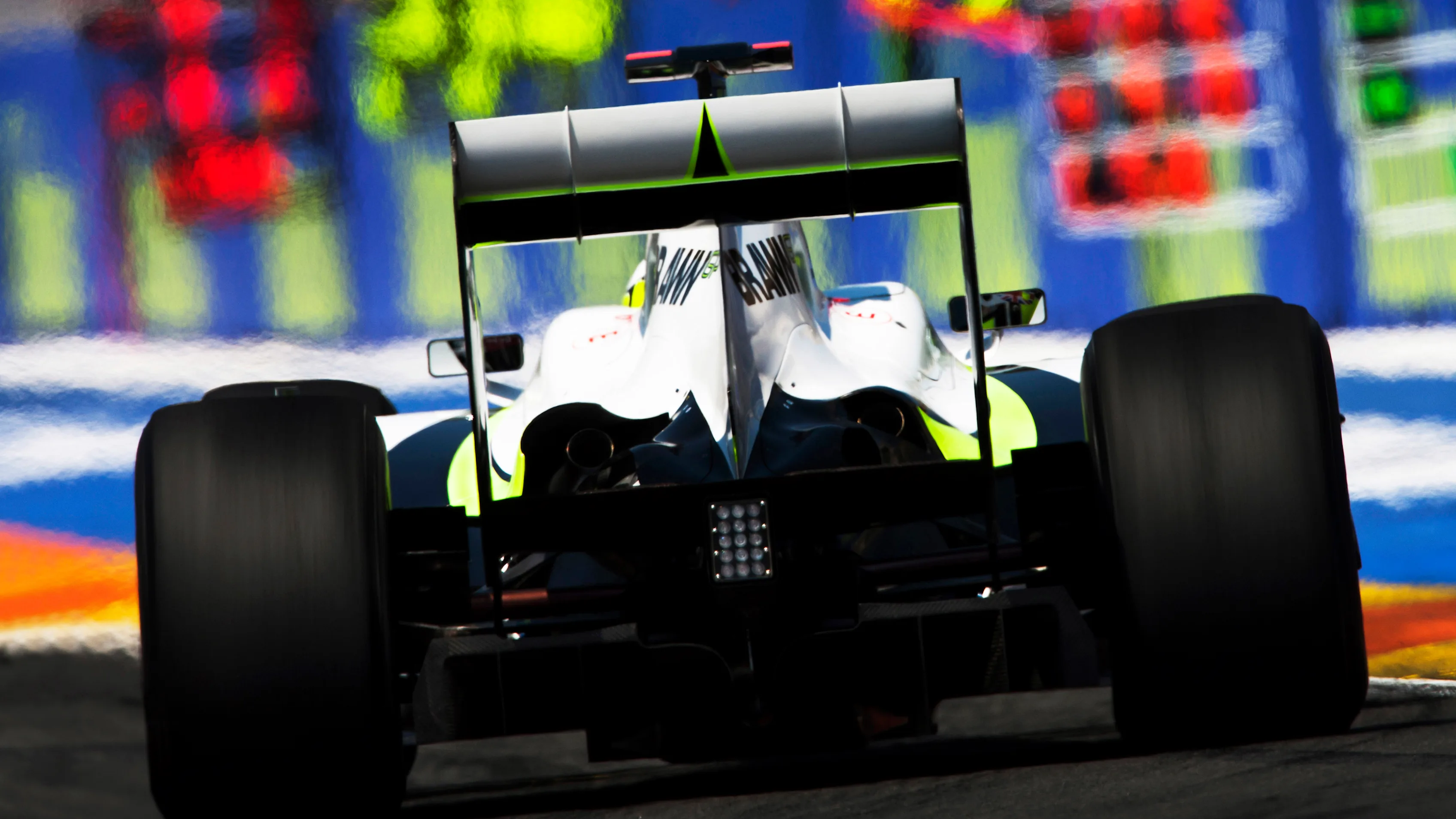
4. Having to call a plumber to help plug a gap during race weekends
While Brawn’s takeover kept the Brackley team on the grid, significant cuts were required across the board in the weeks that followed to ensure operations were sustainable, despite additional investment from the likes of Virgin’s Richard Branson.
That meant plenty of people who had worked so hard over the winter to get two cars on the grid being let go, while forcing some of the employees who remained to double up on duties and try things they hadn’t done before.
READ MORE: 5 times F1 teams got the new regulations right
One of these situations came to the fore in the pit lane, with the documentary highlighting how a new refuelling crew struggled to hit the mark during the Australian Grand Prix and cost Brawn valuable seconds to the competition.
“Our fuel guy that we’d used for ages, he resigned because he thought the team was not going to survive, and he became a plumber,” says Button. “We went to the first race and I think our first pit stop was 11 seconds, [when] it should have been probably five seconds.”
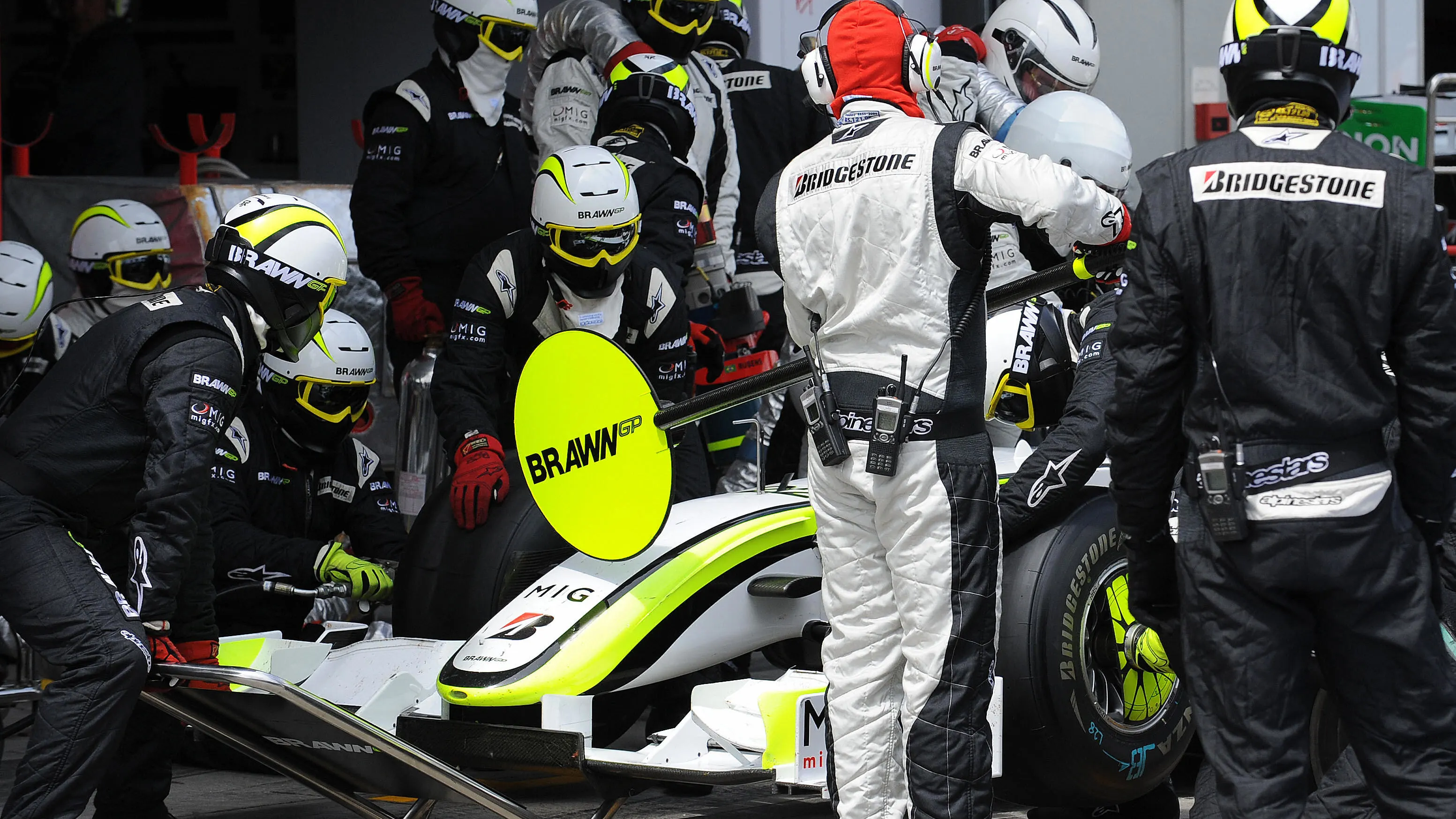
In stepped Brawn with a phone call to Gary Holland, the man who had recently departed, asking: “‘What’s your rate for coming to plumb a Formula 1 car for the weekend?’” They duly secured his services for races only, with Brawn describing him as “our weekend warrior”.
“[Ross] came on and just said, ‘We’ve had some issues, we need every bit of performance that we can get’,” Holland remembers. “I’d travel home and go back to my sedate world in London trying to forge my way as a plumber!”
5. The moment the garage was split between Barrichello and Button
Button made the most of Brawn GP stealing a march on the competition by winning six of the first seven races and building up an enviable championship lead, but victory in Turkey would be his last of the season and, as the races ticked by, his title bid almost came undone.
While Red Bull in particular closed the gap and piled the pressure on, Button also faced a growing threat from within the Brawn camp, as team mate Barrichello steadily built up more and more confidence and took two important mid-season wins at Valencia and Monza.
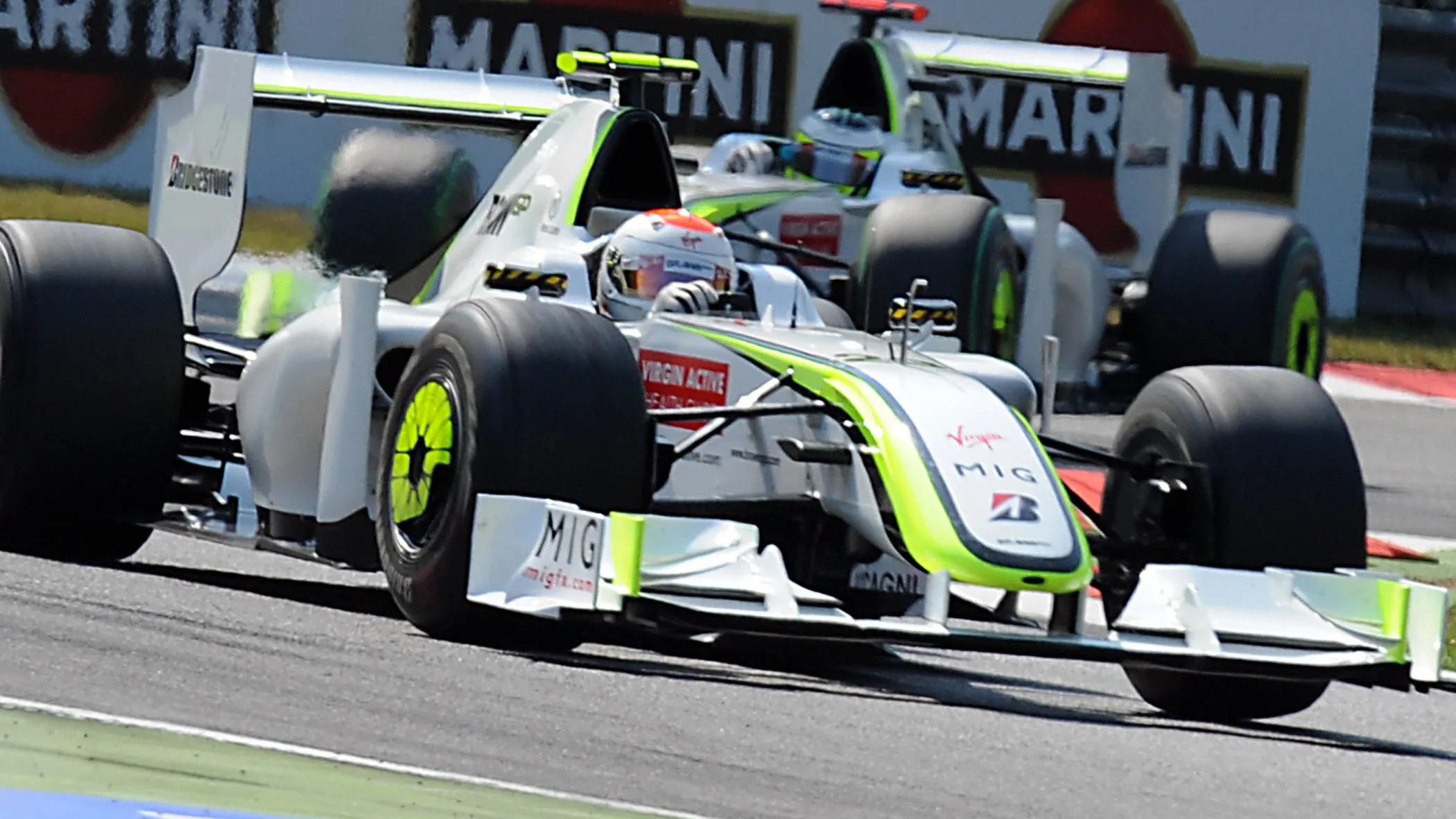
It was at Monza that the intra-team competition came to a head in what became known among the squad’s engineers as ‘camber-gate’ – camber being the angle of the tyres and how they interact with the track surface.
“[Tyre supplier] Bridgestone had brought in a camber limit and said you can’t run more than a certain amount, and Rubens was over this limit,” asserts Button’s race engineer, Andrew Shovlin. “It gives you more grip, really; it better distributes the load when the car’s cornering.
“[At Monza], Jenson in the final corner lost a bit of time to Rubens because he had a bit less stability, and probably I went off down the rabbit hole a bit saying, ‘If it wasn’t for this we would have been ahead.’”
WATCH: Top 10 – F1's cheekiest technical innovations
In Fry’s words, “it was suspected – they weren’t going to admit it – that they were hiding data” within the engineering department.
“The bottom line is we had a little bit more rear camber than they did,” adds Barrichello’s right-hand man Clear. “Jenson got to hear about it and kicked off massively, which then escalated it to Ross’s level – he rapped my knuckles a bit. That’s when we really got under Jenson’s skin.
“There was still a lot to play for and that was actually quite enjoyable, because you thought, ‘Yeah, Jenson’s actually worried about us now. If he’s worried about that eighth of a degree of rear camber, he is worried about what Rubens might be able to do over the next few races to eat into his lead.”
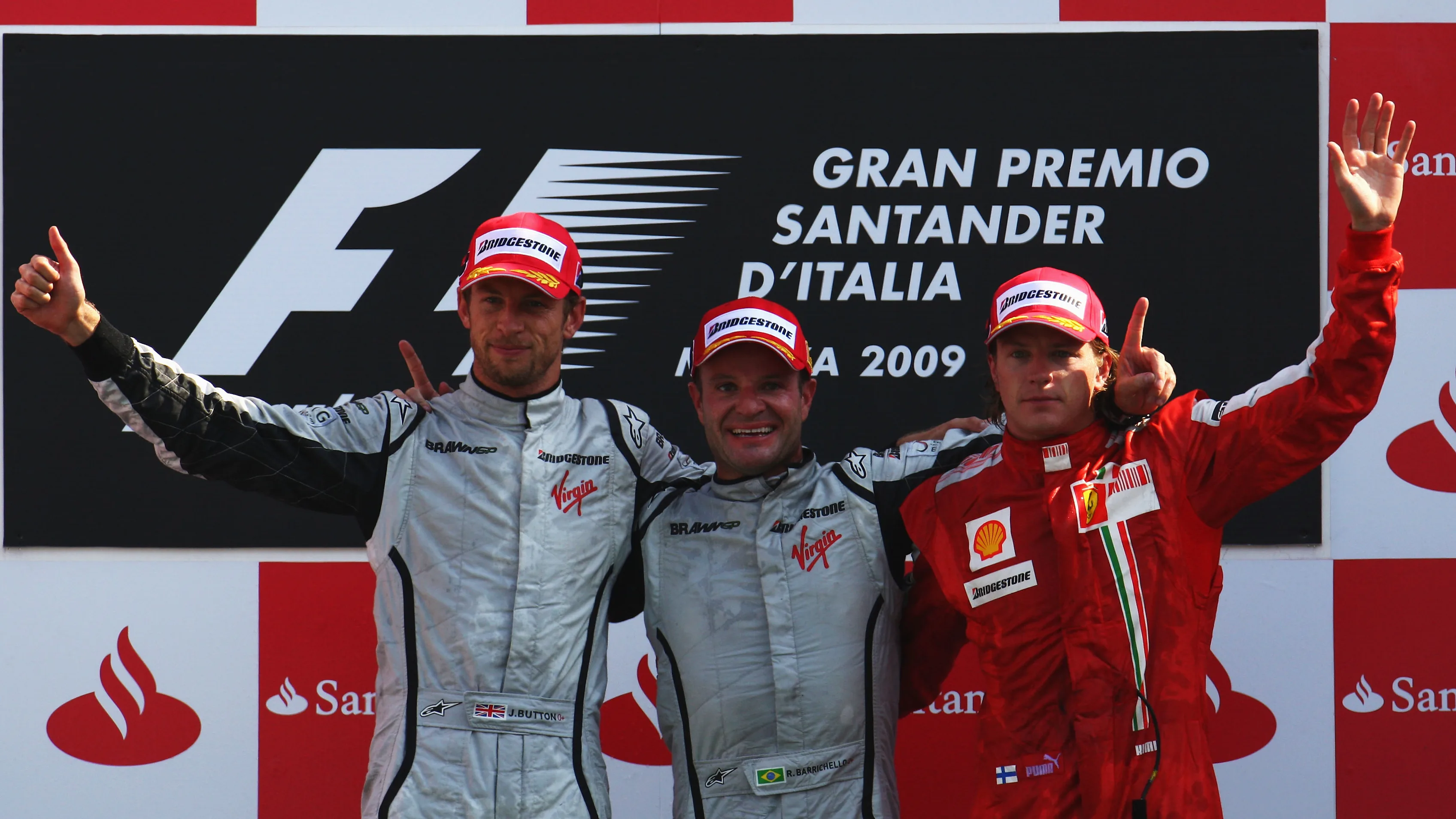
6. How a beer with his dad put Button back on course for title glory
Button continued to battle with the pressure of being in a title fight over the next couple of races and he arrived at the penultimate round of the season, Barrichello’s home race in Brazil, just 14 points ahead of his team mate.
After a disastrous rain-hit qualifying session that saw Button drop out in Q2 and Barrichello charge his way to pole position, the documentary shows the British driver hitting a new low and dealing with pranks from locals such as a ladder being placed above the door of a restaurant he was visiting.
LISTEN: Jenson Button on his 2009 title, his toughest team mate and more
With his hopes of winning a maiden F1 title hanging in the balance, Button described himself as “lost”, adding: “This is our chance and you never know in Formula 1 when your next chance is going to come around to win a race, let alone a championship.”
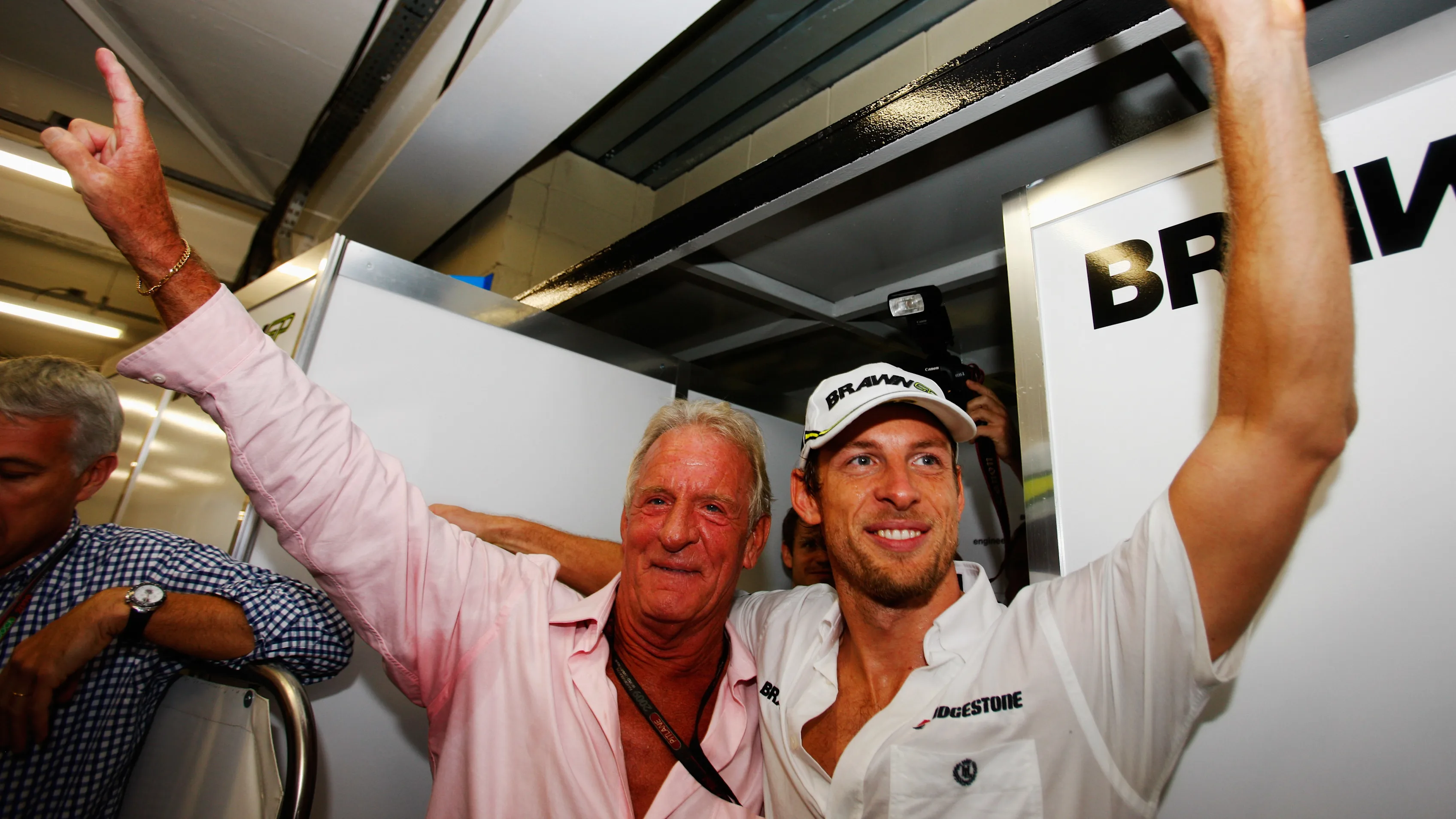
Upset with the aforementioned incident, Button remembered heading back to his hotel with his father, John, who would play a key role in getting his mindset in the right place for race day.
“I went to get in the lift, said goodnight to everyone, [thinking] I need a bit of time to myself, and my dad grabbed me and he said, ‘We’re going up to the bar,’” he says. “We went to the bar in the hotel and he actually got me a beer, which obviously I didn’t normally drink.
“He said, ‘Just remember, nobody expected you to be winning races and you won six of the first seven.’ He reminded me of the other races that I’d had when I’ve had to fight through and he said, ‘You’re going to win this championship.’ I gave him a big hug, didn’t actually drink my beer, maybe a sip, put it down, and went to bed.”
The next day, Button rose from 14th on the grid to fifth and the world title was his, along with an emotional constructors’ crown for Brawn GP.
All episodes of Brawn: The Impossible Formula 1 Story are currently available on Disney+
Next Up
Related Articles
.webp) 20 of the most exciting talents on the road to F1 in 2026
20 of the most exciting talents on the road to F1 in 2026.webp) How Lewis Hamilton became F1’s most influential fashion icon
How Lewis Hamilton became F1’s most influential fashion icon.webp) Team Previews 2026All you need to know about Red Bull
Team Previews 2026All you need to know about Red Bull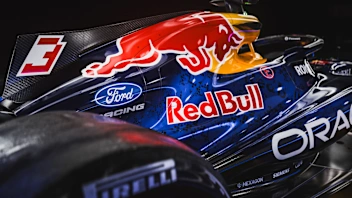 Every angle of Red Bull’s 2026 livery
Every angle of Red Bull’s 2026 livery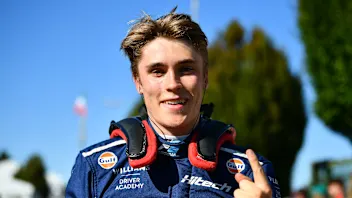 Williams confirm Browning as reserve driver for 2026
Williams confirm Browning as reserve driver for 2026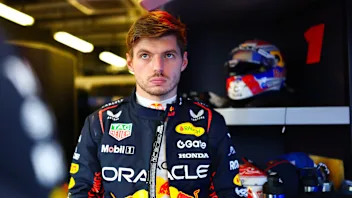 Verstappen names his most difficult season in F1
Verstappen names his most difficult season in F1